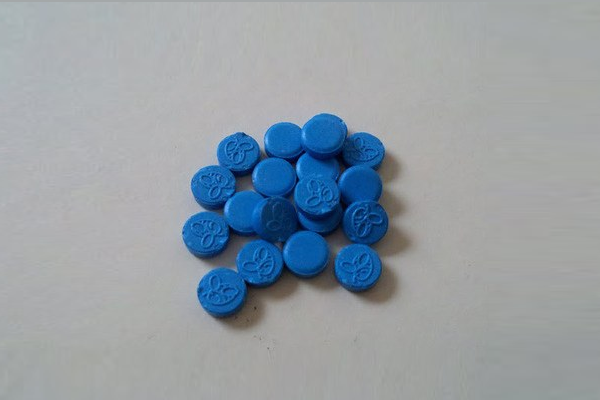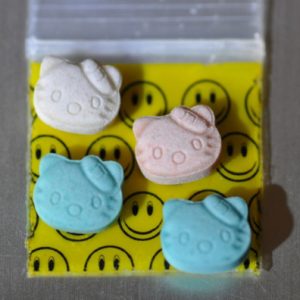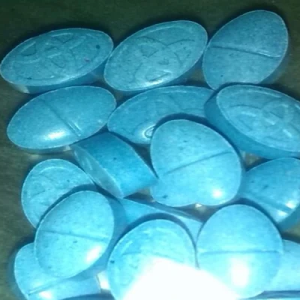Купить 2C-B NEXUS BLUE BEES
ОПИСАНИЕ
Купите 2C-B NEXUS BLUE BEES.
The rise of substances like 2C-B NEXUS BLUE BEES на онлайн-рынках подчёркивает более масштабную трансформацию способов доступа к психоактивным веществам, их продажи и потребления. Эти вещества, ранее ограниченные подпольными кругами, теперь широко циркулируют на цифровых серых рынках — онлайн-пространствах, действующих вне рамок формального регулирования, но не всегда полностью нелегально. Этот сдвиг поднимает серьёзные этические, правовые и медицинские вопросы. Как совместить индивидуальную автономию с общественным вредом? Кто несёт ответственность на децентрализованных цифровых рынках?
Цифровой серый рынок
Обзор интернет-продавцов, форумов и отзывов пользователей
Digital marketplaces, including darknet platforms and semi-public forums, are now the primary channels for buying compounds like 2C-B NEXUS BLUE BEESПродавцы используют приложения для зашифрованных сообщений, скрытые URL-адреса (в сети Tor) и системы репутации для укрепления доверия покупателей. Такие платформы, как Dread, форумы типа Reddit и группы в Telegram, предоставляют обзоры продуктов, отчёты о поездках и советы по снижению вреда, часто с удивительной прозрачностью и подробностью.
В этих условиях стираются границы между законной потребительской торговлей и незаконным оборотом наркотиков. Отзывы пользователей играют ключевую роль, при этом качество, эффективность и обслуживание клиентов тщательно проверяются, как на Amazon, хотя и в нерегулируемом и высокорискованном контексте.
Роль криптовалюты и анонимности
Криптовалюты, такие как Bitcoin, Monero и Ethereum, позволяют проводить быстрые и полуанонимные транзакции. Этот финансовый уровень лежит в основе работы серого рынка. Относительная анонимность позволяет покупателям и продавцам минимизировать вероятность обнаружения, а смарт-контракты и эскроу-сервисы обеспечивают базовую защиту от мошенничества.
Однако эта же анонимность затрудняет работу правоохранительных органов и поднимает вопросы ответственности. Использование анонимных монет (например, Monero) ещё больше затрудняет отслеживаемость, затрудняя контроль или вмешательство в продажу потенциально опасных веществ.
Автономия против вреда
Должны ли люди иметь доступ к незарегистрированным веществам?
Такие соединения, как 2C-B, часто находятся в «серой зоне» правового регулирования: в одних юрисдикциях они не включены в список контролируемых веществ, в других — запрещены. Сторонники декриминализации утверждают, что взрослые должны иметь свободу исследовать своё сознание и принимать обоснованные решения о том, что они употребляют в свой организм, особенно если вещество не вызывает физической зависимости и не наносит существенного вреда в типичных дозировках.
Критики, однако, подчёркивают потенциальную опасность злоупотреблений, дезинформации и опасных комбинаций при приобретении наркотиков вне регулируемых каналов. Без медицинского надзора и контроля качества даже теоретически «безопасный» психоделик может причинить непреднамеренный вред.
Баланс между свободой и общественным здоровьем
Striking a balance between personal liberty and public safety is at the core of modern drug policy debates. While prohibition has historically failed to eliminate demand, unregulated availability via digital platforms increases risks — especially for adolescents, inexperienced users, or those with underlying mental health conditions.
Policy solutions must weigh civil liberties against the societal cost of emergency room visits, mental health crises, and accidental poisonings from impure or misidentified substances.
Ответственность платформы
Несут ли торговые площадки ответственность за то, что продается?
Цифровые торговые площадки часто заявляют о своей нейтральности, сравнивая себя с поставщиками технологий, а не с наркоторговцами. Однако масштаб и специализация этих платформ свидетельствуют об обратном. Подобно тому, как eBay имеет политику борьбы с мошенничеством, а Amazon обеспечивает соблюдение стандартов качества продукции, платформы серого рынка контролируют, что разрешено и как это продаётся, — от запрета мошенничества до внедрения систем возврата средств.
Итак, кто несет ответственность? Хотя в некоторых юрисдикциях операторы платформ считаются соучастниками незаконной деятельности, обеспечение соблюдения этих правил остается сложным из-за юрисдикционных границ, анонимного хостинга и технологий шифрования.
Case Studies of Shutdowns (e.g., 2C-B NEXUS BLUE BEES)
Когда закрываются популярные торговые площадки, такие как AlphaBay, Dream Market или отдельные магазины, продававшие 2C-B NEXUS BLUE BEES, возникают цепные эффекты. Пользователи бросаются на поиски замены, часто обращаясь к ещё менее безопасным или надёжным источникам. Правоохранительные органы одерживают победу в этой временной битве, но экосистема быстро адаптируется.
Каждое удаление преподносит важный урок: воздействие на цепочку поставок без учета спроса или обучения пользователей редко приводит к долгосрочным изменениям.
Политические и этические решения
Этическое регулирование в эпоху децентрализованной торговли
Война с наркотиками в цифровую эпоху оказалась неэффективной. Вместо того чтобы пытаться искоренить серый рынок, эксперты всё чаще выступают за этичное регулирование: легализацию определённых веществ в контролируемых условиях, установление стандартов тестирования и маркировки, а также переориентацию усилий правоохранительных органов на снижение вреда.
Например, службы проверки наркотиков, кампании по просвещению общественности и интеграция культуры психонавтов в системы здравоохранения могли бы снизить риски без криминализации потребителей.
Цифровой мониторинг без превышения полномочий
Технологические инструменты могут помочь выявлять тенденции в употреблении психоактивных веществ, отмечать опасные партии и информировать органы здравоохранения о мерах реагирования, не превращая при этом интернет в объект слежки. Аналитика, сохраняющая конфиденциальность, и искусственный интеллект могут отслеживать форумы на предмет возникающих рисков (например, некачественных партий 2C-B NEXUS BLUE BEES), сохраняя при этом анонимность пользователей.
Новая нормативная база должна быть гибкой, технологичной и уважающей права человека — в отличие от нынешних разрозненных подходов.
Заключение: Навигация по будущему этики цифровых наркотиков
Появление таких веществ, как 2C-B NEXUS BLUE BEES, на онлайн-площадках — не единичный случай, а предвестник децентрализованного, цифрового будущего в сфере употребления психоактивных веществ. По мере развития крипторынка общество должно реагировать не устаревшими моделями запрета, а этичными, основанными на данных и ориентированными на пользователя политиками.
Нравится нам это или нет, цифровая наркоторговля никуда не денется. Чтобы в ней ориентироваться, требуется тонкое понимание технологий, психологии, права и этики.
Final Tips: Staying Safe, Legal, and Informed in a Changing Landscape
- Always verify legality in your country before considering any psychoactive substance.
- Use third-party testing services where possible to confirm compound identity and purity.
- Avoid public markets and sketchy vendors — trust reviews, but cross-reference sources.
- Engage in communities that emphasize harm reduction and informed use.
- Respect your limits and mental health — especially when trying new substances.
Детали
| Количество | 25P 20 мг, 50P 20 мг, 100P 20 мг, 200P 20 мг, 500P 20 мг |
|---|







